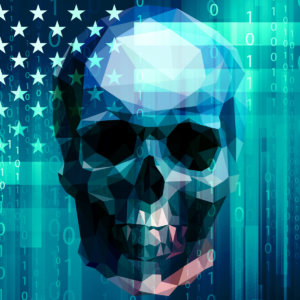The Risks of Digital Democracy
Business needs to push back — hard — against cyberthreats to elections.
Topics
Leading Sustainable Organizations
Like many segments of the economy and society, democracy is in the process of being digitized, a development that promises new levels of efficiency but also brings new risks. Consider the digitization of voting machines, devices that date back to the 19th century. The growing use of direct recording electronic (DRE) voting machines has made possible fully digitized voting and the availability of near real-time results.
But, the events of this summer’s 25th annual DEF CON computer security conference illustrate the risks that come with these benefits. As part of the conference, software engineers were invited to a Voting Machine Hacking Village to try to break in to commercially available DRE voting machines. The hackers cracked the “secured” systems in less than two hours.
The breaches were so worrisome that Douglas E. Lute, national security expert and former U.S. Ambassador to NATO, said, in his foreword to 2017’s DEFCON 25 report, “Loss of life and damage to property are tragic, but … [l]osing confidence in the security of our voting process — the fundamental link between the American people and our government — could be much more damaging.”
Voting machine vulnerabilities are just one type of risk in a digitized democracy. Authoritarian countries like Russia and North Korea are actively engaged in systematic dirty tricks — hacking voter rolls, authoring divisive propaganda, exploiting social media — to influence and throw doubt upon elections in the democratic world. What’s more, the systematic degradation of a free press is in full swing. A wide range of forces, both foe and “friend,” is using digital tools to lay siege to the fourth estate (and fifth) — which Thomas Jefferson argued was a critical check on abuses of power. Exploitation of digital tools can undermine, and is already undermining, a fundamental tenet of democracy: government for the people, by the people.
The history of the democratic process in the U.S. has been one of constantly expanding voting representation, often through social activism. Limited to landholding white males at the time of the American Revolution, the definition of “citizen” has been systematically expanded through the suffrage movement, the Civil Rights Act, and so on. The presumption has been that expansion of participation — suffrage — leads to a more perfect union. But, the digitization of democracy potentially threatens this premise at a fundamental level. Why believe the institutions of government are working on your behalf if digital democracy can be so easily manipulated?
Belief matters: It is what governs and girds the “fundamental link between the American people and our government” in former Ambassador Lute’s remarks. Yet, public belief in the institutions of democracy is withering. Trust in government is at historic lows.
As we discussed in our previous article, business leaders have a vested interest in safeguarding the stability and effectiveness of governance institutions. It is government that ensures the existence of markets, as well as the social infrastructures that allow markets to thrive. Democracy is the bedrock for these institutions in Western countries, so preserving the public’s belief in democratic institutions is fundamental.
The Tinkerbell effect describes things that exist because people believe in them. The notion comes from the stage version of Peter Pan where audience members are asked to clap to show a dying Tinkerbell that they still believe in her, something that brings the fading fairy flittering back to life.
The belief in government by the people and for the people is subject to the Tinkerbell effect. When society’s applause stops, the idea dies. Digitizing democracy ups the ante on all of democracy’s stakeholders to build and maintain faith in democratic institutions. It’s time for business leaders to give a standing ovation.





